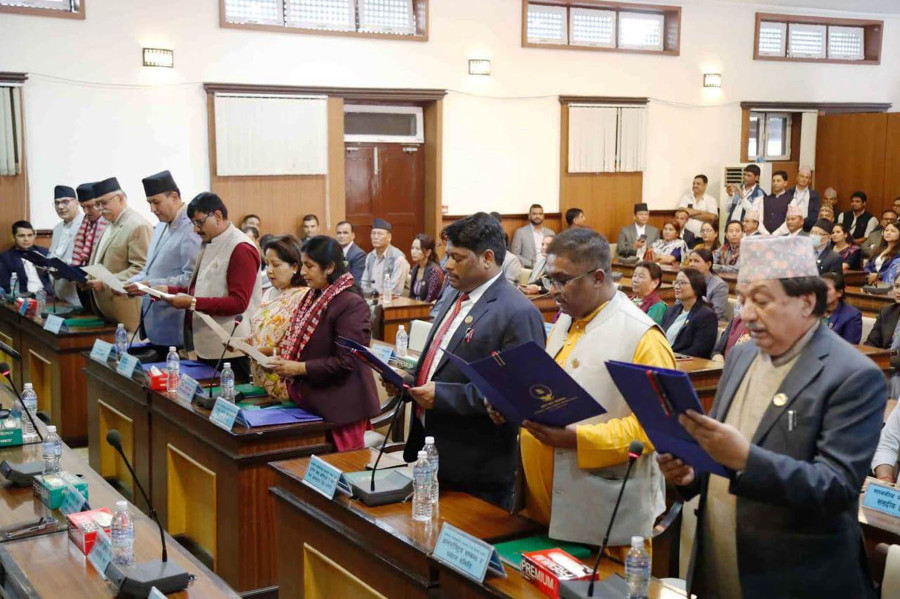Editorial
Get to work now
Effective House panels can help change people’s generally negative view of lawmakers.
All parliamentary committees, save two, now have their chairpersons. If the concerned parties respect their understanding, heads of the remaining two committees will also be elected within days. The political parties sent a positive message by electing 10 chairpersons unopposed on Monday. However, it took over nine months after the general elections and over seven months after the first sitting of the House of the Representatives to do so. Though the committees were constituted on April 28, the panels since were led by senior-most members by age. But in the absence of elected chairpersons, the thematic bodies failed to function effectively.
In a parliamentary system, the committees are regarded as “workshops” as they can connect the elected body to the general public. Committees can minutely work on issues of public concern, making the general public feel that their representatives are doing something meaningful for them. Otherwise, full House proceedings are mostly limited to formal businesses such as electing prime ministers, conducting vote of confidence, deliberations on policy and programmes and fiscal budgets, formulating and amending laws, etc. These affairs are far removed from people’s day-to-day concerns. The committees however can pick up stuff that directly affects the people, for instance issues like market anomalies, study the matter and suggest solutions to the concerned government agencies.
If a few decades of Nepal's parliamentary practices are any guide, the country has had a mixed experience. Some panels have greatly contributed to making the government agencies accountable. But they are more often criticised for decisions and directives issued based on insufficient study. This is a recurring problem. Jurisdictional dispute between different committees is another drawback that frequently invites unnecessary irritants in the legislature. One issue has been a particular challenge in recent parliaments: conflict of interest. Lobbying of certain lawmakers in favour of businesses they are involved with has alarmed many.
In this tenure, members and heads of each committee and the Parliament’s leadership should take up this matter seriously and work to do away with such anomalies. One way to prevent committee members from being involved in conflict of interest will be to get them to voluntarily declare any such involvement and stay away from areas of potential conflict. This is in fact a common international practice. Our parliamentary regulations also have such a provision. But in practice, lawmakers have often breached this rule.
There is also a provision in the House regulations that a committee can be formed under the Speaker’s leadership, with deputy Speaker, leader of the main opposition and lawmakers of other parties represented in the House as members, specifically to deal with ethical issues that arise in the House. But such a committee is seldom formed even though the instances of conflict of interest have been steadily rising. The political parties stood together to elect committee heads unopposed on Monday. Hopefully, there will also be a high level of collaboration in the now-complete committees and people will actually get to live out their outcome. Effective House panels can go a long way towards changing people’s generally negative view of their elected representatives.




 9.89°C Kathmandu
9.89°C Kathmandu














